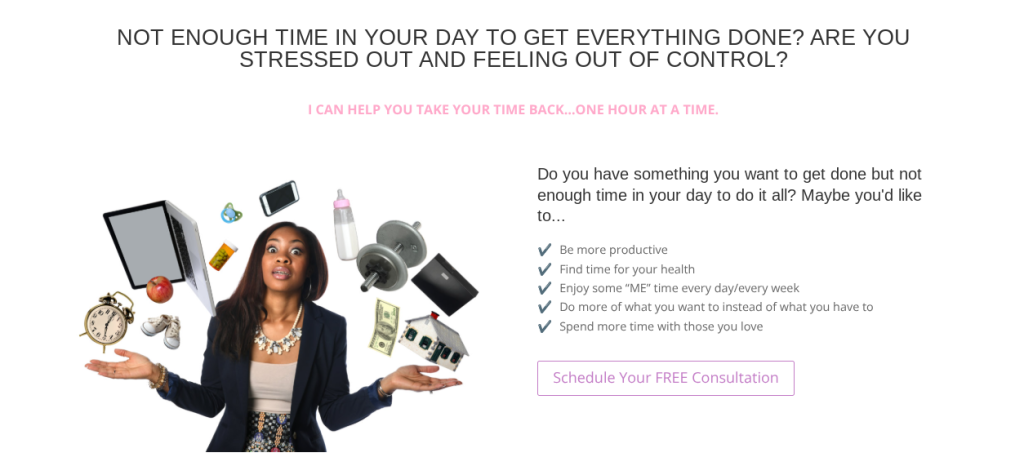You’re asked to join another committee, hop on another call, help with another fundraiser, squeeze in another client, volunteer, network, plan, host, fix, or just “be a second pair of eyes.”
And before you realize it, you’re saying, “Sure, no problem.”
But there is a problem.
Your mouth said yes, but your body shouted no.
That’s how it begins—the quiet erosion of your time, energy, and even your sense of self. It doesn’t come from dramatic decisions but from a thousand little yeses that seem harmless until they’re not.
No one teaches high-achieving women how to pause before they say yes. Not because you’re flaky. Not because you’re selfish. But because your peace, purpose, and power depend on it.
Here’s what you need to know.

The Myth of “I Can Handle It”
You’ve made a reputation out of being dependable. You get things done. You rarely drop the ball. You’re the glue holding your family, business, and team together.
But here’s the truth hiding behind that shiny badge of honor:
Just because you can doesn’t mean you should.
Every time you say “yes” automatically, your energy gets diluted. You end up living reactively instead of intentionally. Your calendar fills up, but your clarity fades away. You keep moving, but emotionally you’re stuck in place.
It’s subtle yet relentless—and it takes a toll.
The High Cost of Automatic Yeses
Let’s get honest. Most of the time, you say yes because of:
- Guilt: “They need me.”
- Fear: “I might miss an opportunity.”
- Habit: “I’ve always done it.”
- Ego: “They won’t do it right without me.”
But each yes has a hidden price:
Your time. Your focus. Your capacity to prioritize what actually matters.
When you consistently ignore your inner voice, you become disconnected from yourself. When your schedule is packed with commitments that don’t fulfill you, you’re no longer leading—you’re simply performing.
The One Question That Changes Everything
Here it is—the Power Pause wrapped into one simple question:
“If I say yes to this, what am I saying no to?”
It seems straightforward, but when you truly stop and ask, you uncover the trade-offs you’ve been ignoring.
- Saying yes to a last-minute client might mean saying no to your evening walk.
- Saying yes to volunteering might mean saying no to finally writing that book chapter.
- Saying yes to a friend’s emergency might mean saying no to rest and your own boundaries.
You’re not just making another decision. You’re making a conscious choice—and that’s the difference between clarity and chaos.
Why This One Question Works
This pause works because it moves beyond politeness and taps directly into your deeper wisdom. It brings visibility to the hidden cost behind every yes. It reconnects you with your priorities. It allows your best self a chance to speak before your obligated self does.
How to Build the Power Pause Into Your Day
Even when your life moves at warp speed, you can make this pause a daily habit. Here’s how:
Step 1: Slow Down the Response
You don’t owe anyone an immediate answer. Use responses like:
- “Let me check my schedule and get back to you.”
- “I’ll need to see how this fits right now.”
- “I’ll give you a firm answer tomorrow.”
This creates space for your inner CEO instead of your inner people-pleaser.
Step 2: Use a Simple “Yes Filter”
Ask yourself:
- Does this align with my priorities right now?
- Will this energize or drain me?
- Am I saying yes out of obligation or inspiration?
If it isn’t a wholehearted yes, it’s a respectful no.
Step 3: Practice Saying No Without Apology
“No” is a complete sentence. But if you need something softer, try these:
- “Thanks for thinking of me, but I’m not able to take that on right now.”
- “That sounds amazing, but I’m protecting space in my calendar.”
- “I appreciate the ask, but this isn’t a good fit for me right now.”
Clarity is kindness. No explanations needed.
The Ripple Effect of a Conscious No
When you start practicing this simple pause, several things begin to happen:
- You trust yourself more.
- Your calendar aligns with your true values.
- You create more space, which boosts creativity, focus, and joy.
- You feel less resentment because you spend your time intentionally.
- You inspire other women by demonstrating that boundaries aren’t just allowed—they’re essential.
When It’s Hard to Say No
It’s crucial to acknowledge why saying no feels tough sometimes:
- You don’t want to disappoint.
- You feel pressure to remain visible or relevant.
- You’re accustomed to being the reliable one who always comes through.
But you know what’s harder?
- Never having time to think.
- Running your business from exhaustion.
- Living a life built around commitments you never wanted.
The power pause interrupts this draining cycle—before regret sets in.
When to Use the Power Pause
Use this pause whenever you feel the urge to say “sure” or “yes” impulsively—especially:
- When you get a quick “favor” request via text or DM.
- When a client asks for just one more thing.
- When someone says, “Can you just…” (Spoiler: It’s never “just.”)
- When your calendar is already overloaded and something “urgent” pops up.
It’s not about rigidity; it’s about intentionality.
Saying No Is How You Say Yes to Yourself
Every intentional no is a yes to something else:
- Your peace.
- Your sleep.
- Your next breakthrough idea.
- Your boundaries.
- Your self-respect.
You can’t build a powerful, fulfilling life from obligation and exhaustion. Your vision deserves protection—and it begins with a pause and a question.
Ready to Try It?
Here’s your challenge:
- Next time you’re asked to commit, pause first.
- Ask yourself: “If I say yes, what am I saying no to?”
- Choose intentionally, not reflexively.
- Communicate your choice clearly—and without guilt.
Do this consistently, and watch as your schedule and your life come into alignment.
You were never meant to be everything for everyone. You were meant to be deeply, unapologetically, wonderfully you.
Prioritize Progress, Not Perfection
This isn’t about being perfect. It’s about being intentional.
You don’t need to follow some hyper-optimized system with timers and color-coded apps (unless that works for you). You just need to ask, “What matters today consistently?”
When you prioritize your time based on impact—not urgency—you get more done, feel less stressed, and stop spinning your wheels.
So, ditch the guilt. Grab your list. Start with your top three. And remember—you’ve got this.

